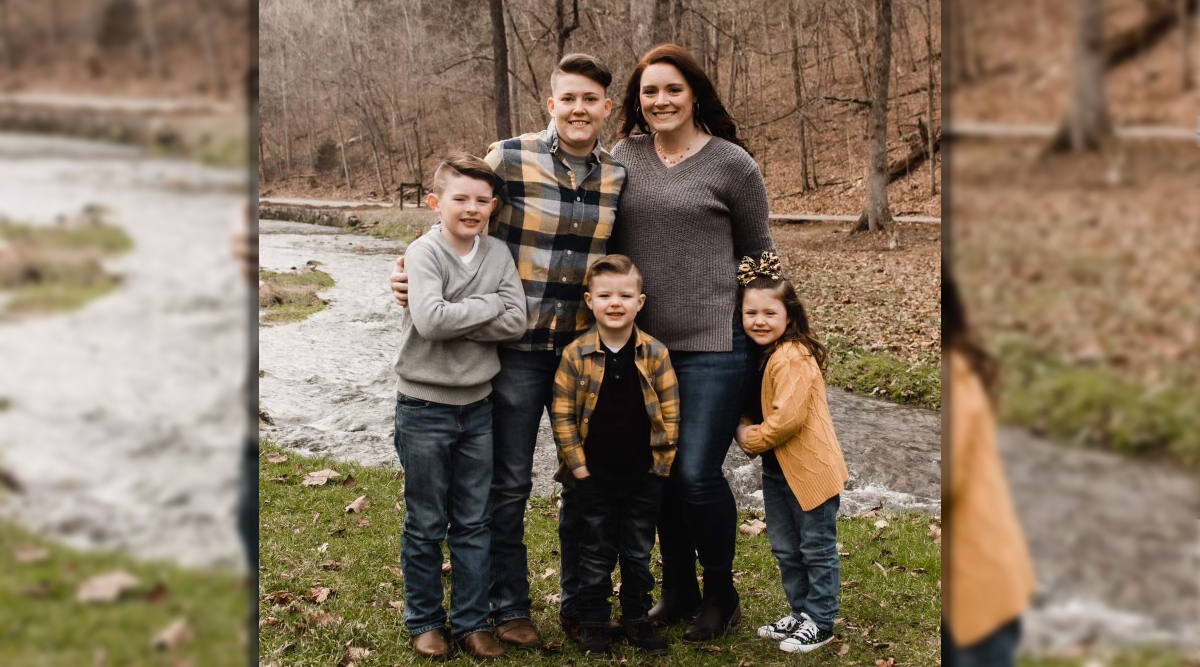It’s been a road filled with the unexpected and unpredicted. Now Kelsey Collard is in the hands of oncologists at IU Health Simon Cancer Center.
By IU Health Senior Journalist, TJ Banes, tfender@iuhealth.org
First there was the family history. Kelsey Collard, 32, is one of several family members who carry the BRCA1 mutation. Through genetic testing, Collard discovered she has the inherited gene that can increase her risk for breast cancer.
Second, there was the dense breast tissue, indicating the amount of fibrous and glandular breast tissue. The Centers for Disease Control and Prevention (CDC) report women with dense breast have a higher risk of getting breast cancer than patients with non-dense breasts.
The combination of risk factors kept Collard aware and diligent. She performed regular self exams. In 2020 she discovered a small cyst on her left side. Overtime, the cyst diminished but it kept Collard alert. In March, she felt a lump near her left pectoral.
A mammogram and biopsy confirmed that Collard had breast cancer. She spent the next few months in and out of hospitals – the result of a serious infection in the area of her port.
A year ago, a friend introduced Collard to the woman who would become her wife. It was that woman, Jessica Cazee, who began researching the best hospitals and oncologist to help Collard through her cancer diagnosis.
She discovered Dr. Tarah Ballinger with IU Health Simon Cancer Center. Dr. Ballinger is known for her clinical interests including high-risk and survivor breast oncology. She also believes in empowering her patients to engage in decision-making and honest discussions about their treatment plan. Collard has since learned that she has Triple-negative Breast Cancer (TNBC), that accounts for about 10-15 percent of all breast cancers. The “triple negative” refers to the cancer cells not having estrogen or progesterone receptors. These types of cancer are most common in women under the age of 40, who are black, or who have a BRCA1 mutation. TNBC is considered an aggressive cancer.
“From the first time I met Dr. Ballinger I was relieved. She is probably the first doctor that I trusted after so many difficulties,” said Collard. She met Dr. Ballinger on August 5 and began chemotherapy later in the month. “Dr. Ballinger listens to our concerns. She makes you feel so comfortable and doesn’t make you feel like there are any dumb questions,” said Cazee.
Collard and Cazee married on August 6 – the anniversary of the day they met. They wanted to have a small ceremony before Collard began her chemotherapy. Friends gathered at the Social Cantina in Bloomington, close to their Bedford, Ind. home. They hope to have a bigger celebration once Collard completes her treatment. Together, with Cazee’s three children, they are now a family of five.

A native of Pekin, Ind. in Washington County, Collard joined the Army National Guard right out of high school. She spent a semester in college and then deployed to Afghanistan in 2012. After nine months, she returned to the States and lived in Louisville, Ky. She was again deployed in 2019 to Kuwait. Her tour was cut short when she tore her ACL. She continued her military career at Fort Campbell, located on the Kentucky-Tennessee border.
It was Collard’s team lead in Afghanistan who introduced her to Cazee, one of his long-time friends. Cazee also served the military – the Air Force National Guard.
“She’s my best friend. I’ve never been so connected to anyone,” said Collard. They both enjoy crafts, playing softball, and volleyball, and anything with the children – ages, 9, 5 and 4. They are also raising 13 chickens.
“She’s goofy and fun and I’ve seen how strong she is through all of this,” said Cazee. “She loves my kids like her own and I’ve seen her persevere through some tough times. She’s just amazing.”
